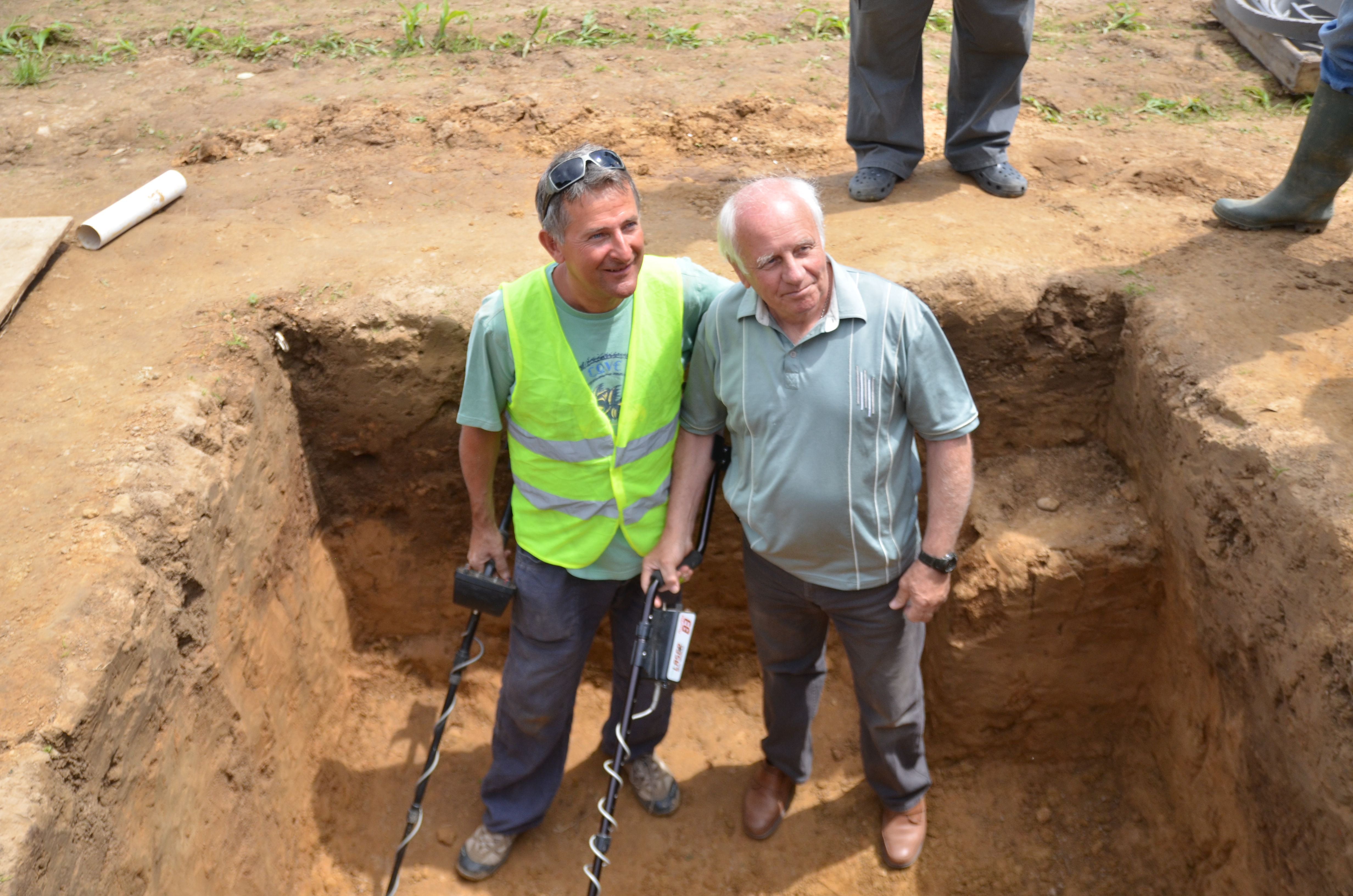


Legislation to give better protection to hidden treasures discovered in the island should be put forward early next year, the Assistant Minister for Culture has said.
The development of the law started in 2020 following a rise in amateur metal detecting.
Deputy Kirsten Morel, the Assistant Minister for Culture, said work on drafting the legislation is still underway.
“Its aim will be to provide a framework of powers to support the island’s adherence to best practice and international conventions,” he said.
“The law drafting instructions are being drawn up by the Law Officers’ Department, and the draft legislation is likely to be lodged early next year.”

Pictured: The development of the law started in 2020 following a rise in amateur metal detecting.
The news comes just a few weeks after ‘A Heritage Strategy for Jersey’ - a document aiming to provide a 20-year vision for the heritage sector - highlighted Jersey’s failure to meet some international standards for heritage conservation and management.
The island is part of the Council of Europe’s 1992 Valletta Convention which focused on archaeological heritage. Ratified by the UK in 2000, it has since applied to Jersey.
In addition to requiring each signatory to create and maintain an inventory as well as to protect both specific sites and areas of archaeological importance, including underwater remains, the Convention required the reporting of “chance archaeological discoveries” to be made mandatory.
However, in Jersey it only applies to “items of wreck” which must be declared to the ‘Receiver of Wreck’, the Harbourmaster, and ‘treasure’, such as gold or silver objects.
It is not a requirement to report the discovery of other metals and finds made of different materials such as stone, bone or ceramics, despite the significance they may have. As the document notes, the discovery of stone plaquettes from Les Varines shows the “wealth of information” that can come as a consequence of responsible reporting of a find which was not ‘treasure’.

Pictured: The Minister for Economic Development, Tourism, Sport and Culture, Senator Lyndon Farnham initiated the development of the legislation in 2020.
The Minister for Economic Development, Tourism, Sport and Culture, Senator Lyndon Farnham, signed a Ministerial Decision in 2020 to bring forward a Heritage and Antiquities Law that would address the issue and “provide clarity on heritage matters”.
Plans for such legislation were first discussed in the late 1990s in the wake of the introduction of the Treasury Act and Portable Antiquities Scheme in England and Wales, but there has been “little progress” since then and Jersey has “fallen behind” similar jurisdictions.
Since then, interest in archaeological activity has increased through a combination of amateur metal-detecting, visiting archaeological teams (as part of research projects), and developer-funded archaeology (as part of the planning process).
The discovery of Le Catillon Celtic Coin Hoard in 2012 highlighted the “deficiencies” of the current situation, where there is no law to govern the legal position for finders, landowners, heritage bodies, the Crown or the Government.
The hoard, which was buried around 2,000 years ago, contained nearly 70,000 coins, and was found in a field by metal detectorists Reg Mead and Richard Miles. The island wants to buy the hoard but a final price is still yet to be settled.
Last week, the Treasury Minister, Deputy Susie Pinel, said a price of £3,000,512 was to be paid, having been agreed with the Crown.
She said an additional £750,000 had also been paid for the restoration of the hoard.
"This has been going on, in my opinion, for far too long with the people being denied their rightful payment for their findings," she commented. "... but it has been too long and I know one of the people involved has already passed away so it should not carry on any longer."

Pictured: Reg Mead and Richard Miles, who discovered the ancient coin hoard in 2012.
While Jersey Heritage has developed an online 'Historic Environment Record', there is no legal requirement to record any discovery there, and therefore the system is purely voluntary.
The Economic Development Department said in 2020 it feared that, in practice, “only a small percentage” of finds are recorded, threatening the loss of “irreplaceable historic objects and archaeological inheritance."
Comments
Comments on this story express the views of the commentator only, not Bailiwick Publishing. We are unable to guarantee the accuracy of any of those comments.